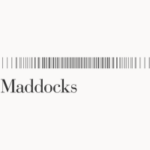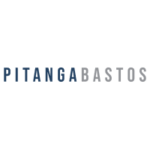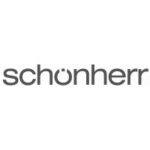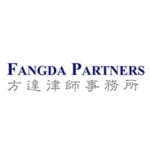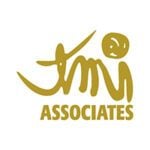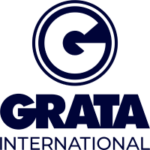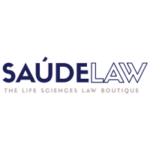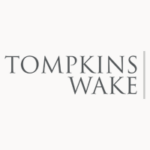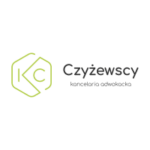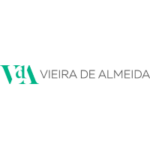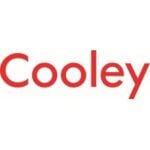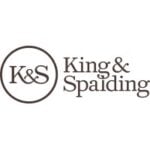-
What laws are used to regulate advertising on medicines in your jurisdiction?
The primary legal basis are the Federal Act on Medicinal Products and Medical Devices of the 15th of December 2000 (Therapeutic Products Act; TPA) in combination with the Ordinance on Advertising for Medicinal Products of the 17th of October 2001 (MPAO). The Ordinance on Integrity and Transparency in relation to Therapeutic Products of the 10th of April 2019 (TPITO) must also be considered.
As a secondary legal basis, the Federal Act against Unfair Competition of the 19th of December 1986 (Unfair Competition Act; UCA) regulates advertising activities and may also restrict advertising on medicinal products.
The Federal Health Insurance Act of the 18th of March 1994 (HIA) and the Ordinance on Health Insurance of the 27th of June 1995 (HIO) also include regulations which are to be considered concerning advertising and the offering of pecuniary benefits.
-
Are there any self-regulatory or other codes of practice which apply to the advertising of medicines? a) If there are any such codes, to whom do they apply (companies, or healthcare professionals, for example)? b) What is the legal status of the self-regulatory codes?
Yes, there are two self-regulatory codes containing regulations concerning the advertising of medicinal products that are binding for signatories:
- the Code of Conduct of the Pharmaceutical Industry in Switzerland (Pharma Code) of the 4th of December 2003, last revised on the 14th of May 2020 (as per 1st of January 2021) and
- the Code of Conduct of the Pharmaceutical Industry in Switzerland on Cooperation with Healthcare Professional Circles and Patient Organizations (Pharma Cooperation Code) of 6th September 2013, revised on 14th May 2020 (as per 1st of January 2021)
In addition, the Guideline on Collaboration between Medical Professionals and Industry of the Swiss Academy of Medical Sciences (SAMS) contains provisions concerning clinical research, medical training and medical education, as well as consultancy activities and acceptance of payment in cash or other forms.
a) If there are any such codes, to whom do they apply (companies, or healthcare professionals, for example)?
The Pharma Code entails rules concerning professional promotion (advertising activities) directed at healthcare professionals by pharmaceutical companies, as well as rules concerning general communication including reference material directed at healthcare professionals by pharmaceutical companies.
The Pharma Cooperation Code specifically regulates the cooperation between pharmaceutical companies in the context of prescription-only medicinal products and healthcare professionals, healthcare, and patient organizations as well as the disclosure of related pecuniary benefits provided by pharmaceutical companies.
The Pharma Code and the Pharma Cooperation Code only apply to those pharmaceutical companies that have declared to comply with the stated rules by signing the corresponding declaration.
The Signatories of both codes are regularly updated and published (Pharma Code: https://www.scienceindustries.ch/en/article/12556/pharma-code-signatories; Pharma Cooperation Code: https://www.scienceindustries.ch/en/article/13944/pharma-cooperation-code-signatories).
The SAMS-Guideline addresses medical professionals – in particular, physicians, dentists, and pharmacists, but also nurses, medical practice assistants, midwives, physiotherapists, and other persons who prescribe, dispense, use or purchase medicinal products and/or medical devices, and also to medical professionals in healthcare facilities or training and research centers which employ the before-mentioned persons.
b) What is the legal status of the self-regulatory codes?
The regulations of the Pharma Code and the Pharma Cooperation Code do not have the status of statutory law and are only of a contractual nature. Pharmaceutical companies that have not signed the code are not bound by the stated rules.
Public authorities such as the Swiss Agency for Therapeutic Products (Swissmedic) and the Federal Office of Public Health (FOPH) are also not bound by the codes but can use them as an aid for interpretation of Swiss statutory law and especially of the MPAO and TPITO.
-
Is there a statutory or generally accepted definition of “advertising”? a) What does the definition cover? – does it include patient information leaflets, for example, catalogues, disease awareness campaigns or correspondence, for example? b) Does the definition apply equally to all target audiences?
Yes, the term “advertising” is defined in article 2 letter a MPAO as all information, marketing and incentive measures intended to promote the prescription, supply, sale, consumption, or use of medicinal products.
a) What does the definition cover? – does it include patient information leaflets, for example, catalogues, disease awareness campaigns or correspondence, for example?
The definition explicitly does not cover (a) the packaging and the patient information leaflet (medicinal product information), (b) sales catalogues and price lists as long as they don’t contain medical information about the medicinal products and (c) general information about health and diseases, provided this information does not directly or indirectly relate to specific medicinal products (article 1 paragraph 2 MPAO).
b) Does the definition apply equally to all target audiences?
This general definition does apply to all target audiences; however, the regulations differ depending on if the advertising is aimed at the general public (article 2 letter b MPAO) or at healthcare professionals (article 2 letter c MPAO).
The following are considered to be forms of advertising aimed at healthcare professionals (article 4 MPAO):
- advertisements in professional publications and other printed materials intended for healthcare professionals,
- advertising on objects,
- advertising by means of electronic media such as image, sound and data carriers and application software,
- advertising within the framework of scientific conferences or promotional events,
- organization and financial support of promotional events,
- mailings and promotional material,
- visits by pharmaceutical representatives, and
- supply of medicinal product samples.
The following are considered to be forms of advertising aimed at the general public (article 15 MPAO):
- advertisements in newspapers, magazines and books, brochures, posters, newsletters, etc,
- advertising on objects,
- advertising by means of electronic media such as image, sound and data carriers and application software,
- advertising during home visits and presentations to laymen,
- advertising in doctors’ and veterinary practices and at points of sale (shop windows, containers for goods for sale, etc.), and
- the distribution of samples.
-
Are press releases regarding medicines allowed in your jurisdictions, and if so what are the restrictions on these (bearing in mind the target audience)?
Regulations specifically on press releases about medicinal products do not exist, therefore they are allowed in principle. However, if the press release falls under the definition of “advertising” as stated in Question 3, then the press releases must adhere to the restrictions concerning advertising for medicinal products. The restrictions differ depending on their intention (are they intended to increase the sales?) and on who the press release is aimed at (see Question 3). If the press release is aimed at the general public, the press release must not contain any references to prescription-only medicinal products (directly or indirectly). In particular, it is not allowed to mention specific medicinal products. Press releases containing information about prescription only medicinal products are only allowed to be aimed at healthcare professionals, i.e., these press releasees must either be password-protected or only be available to healthcare professionals (professional journals and publications etc.) (article 5a MPAO).
The advertising must be recognisable as such, and the advertising content must be clearly separated from editorial contributions (article 5 paragraph 4 and article 16 paragraph 3 MPAO).
-
Are there any processes prescribed (whether by law or Codes of Practice) relating to the approval of advertising of medicines within companies?
The MPAO specifies in article 25 that the authorization holder must designate a responsible person for advertising. This person must have specialised training in natural sciences, medicine or another appropriate type of specialised training or experience.
This person must ensure that the advertising respects the applicable provisions, the requirements of Swissmedic are met in full and without delay, the authorization holders’ pharmaceutical representatives are trained and respect the requirements as stated in the MPAO, must provide Swissmedic with all requested documentation and information and must preserve for six months after the last intended use a copy of each advertisement and keep a directory of every recipient, type of distribution and the date of the first distribution (article 25 paragraph 3 MPAO).
In addition, article 11 TPITO requires any person who produces or sells medicinal products subject to the provisions on the integrity and transparency must (a) designate a person to deliver all the required documents and information to the FOPH on request, (b) retain all the agreements entered into with professionals and organizations in terms of the TPITO for 10 years after their final use and (c) maintain a list of all recipients (healthcare professionals and healthcare organizations) of due advantages in accordance with the TPITO. Still, this person is not responsible for the company’s compliance with the TPITO.
The Pharma Code states furthermore that the pharmaceutical company must ensure that the activities regulated by the Pharma Code must be approved by a responsible person designated for this purpose. As the Pharma Code covers advertising regulations, the responsible person must ensure that all the advertising complies with the Pharma Code. Moreover, the pharmaceutical company must set up a scientific service which is responsible for the information about their medicinal products and their promotion. This scientific service must include a doctor, pharmacist or scientist who is responsible for ensuring the conformity of all promotional and information materials with the Pharma Code. The person from the scientific service must confirm to the aforementioned responsible person, that the final version of the promotional material has been checked and that it complies as far as they can tell with the Code and Swiss legislation.
The Pharma Cooperation Code also obliges pharmaceutical companies to designate a responsible person that approves activities regulated by the Pharma Cooperation Code prior to their practical implementation.
-
Do companies have to have material approved by regulatory bodies prior to release?
A general approval process for promotional material does not exist. However, the MPAO regulates a preliminary control process for advertising directed at the general public in newspapers, magazines and books, brochures, posters, newsletters, etc. and by means of electronic media such as image, sound and data carriers and application software for analgesics, sleeping aids, sedatives, laxatives and anorexics. Such advertising must be submitted to Swissmedic for approval prior to publication if the medicinal product information mentions a potential for abuse or dependence (article 23 paragraph 1 MPAO).
Swissmedic may also require authorization holders who seriously or repeatedly infringe the provisions governing the advertising of medicinal products to submit, for a reasonable period of time, all drafts of the planned advertising in the form specified by Swissmedic for review and approval prior to its appearance (article 23 paragraph 2 MPAO).
-
Is comparative advertising for medicines allowed and if so, what restrictions apply?
Comparative advertising is allowed only for professional advertising as long the comparative statements are scientifically correct and based on equivalent clinical trials or data collections. The clinical trials must have been conducted in accordance with the rules of Good Clinical Practice and be published or accepted for publication. The data collections (such as meta-analyses or reports on practical experience) must have been published in a scientifically recognized professional journal or publication. If the studies used for comparisons are based on experiments in vitro or on animals, this information must be disclosed openly (article 7 MPAO).
Comparative advertising aimed at the general public is not allowed, as it could create the expectation that the treatment is equivalent to or better than another treatment or another medicinal product (article 22 letter c MPAO).
Comparisons can furthermore fall under the UCA. A person acts unfairly if they:
- disparage others, their goods, work, services, prices or their business relationship by making incorrect, misleading or unnecessarily harmful statements,
- take measures that are likely to cause confusion with the goods, works, services or the business operations of others, and
- compare themselves, their goods, works, services or their prices in an incorrect, misleading, unnecessarily disparaging or plagiaristic way with others, their goods, works, services or prices or benefit third parties in competition through such conduct (article 3 UCA).
-
Is it possible to provide information on unauthorised medicines or unauthorised indications? Is it possible to provide information on unauthorised medicines or unauthorised indications during a scientific conference directed at healthcare professionals, or to send information to healthcare professionals?
Information on unauthorised medicinal products or unauthorised indications can be provided, as long as the provided information does not qualify as advertising. Advertising for unauthorised medicinal products and unauthorised indications are explicitly prohibited, as the information, indication and possible applications provided in the advertising must be in accordance with the medicinal product information most recently approved by Swissmedic, which is not possible, if the medicinal products haven’t been authorized yet (article 32 paragraph 1 letter c TPA, article 5 paragraph 1 and article 16 paragraph 1 MPAO).
The same rules apply to information on unauthorised medicinal products or unauthorised indications during a scientific conference directed at healthcare professionals or to send such information to healthcare professionals: information on unauthorised medicinal products or unauthorised indications can be provided, as long the supplied information does not promote a medicinal product. The same applies to new indications, possible applications, dosages, pharmaceutical forms, and packaging of a medicinal product. With such information, it must always be clearly stated that this medicinal product, or the new indication, possible application, dosage, pharmaceutical form, or packaging for the medicinal product has not yet received authorization from Swissmedic. If the brand name of the medicinal product is mentioned, it must always be accompanied by the official abbreviated designation of its active ingredients (DCI [denominatio communis internationalis]/INN [International Non-Proprietary Names]).
The rules differ if it is an event with international participation: information materials given out on request can refer to a medicinal product that is authorised in other countries but not (yet) in Switzerland or is authorised in Switzerland under different conditions. The information must include a reference to the countries where the medicinal product is authorized and that they are not (yet) authorized in Switzerland or are subject to different conditions in Switzerland. Furthermore, it must reference to the possible differences in registration requirements and government-approved professional information (indications, warnings etc.) in the country or countries where the medicinal product is authorised.
-
Please provide an overview of the rules that apply to advertising to the general public for prescription only medicines and over the counter medicines, and include the information that must or must not be included.
As in Question 3b mentioned, Swiss law differentiates its regulations depending on, who the advertising is aimed at. For advertising aimed at healthcare professionals see Question 11.
Advertising for prescription-only medicinal products aimed at the general public is prohibited (article 32 paragraph 2 letter a TPA).
Advertising for over-the-counter medicinal products aimed at the general public is permitted but must comply with many restrictions (article 31 paragraph 1 letter b TPA, article 14 MPAO).
Advertising is unlawful if
- it is misleading or contrary to public order and morality,
- it may incite an excessive, abusive, or inappropriate use of medicinal products,
- it is for medicinal products which may not be placed on the in Switzerland.
- the medicinal product contains narcotic or psychotropic substances as referred to in the Federal Act on Narcotics and Psychotropics Substances of the 3rd of October 1951 (Federal Narcotics Act; NarcA),
- the medicinal product may not, on account of their composition and their intended use, be used without the intervention of a doctor for the necessary diagnosis, prescription, or treatment, and
- the medicinal product is frequently the object of abuse or leads to an addiction or dependence (article 32 paragraph 1 and 2 TPA).
General Requirements
All information in advertising must be in accordance with the medicinal product information most recently approved by Swissmedic. In particular, only indications and applications approved by Swissmedic can be advertised (article 16 paragraph 1 MPAO). The properties of a medicinal product in words, images and sound must be factually correct und must be presented without exaggeration (article 16 paragraph 2 MPAO). The advertising must be recognizable as such, and the advertising content must be clearly separated from the editorial contributions (article 16 paragraph 3 MPAO).
A medicinal product, an indication, a dosage, a galenic form or a package may only be advertised as “new” during 18 months after its first authorization in Switzerland. It must be clearly indicated what this attribute refers to (article 16 paragraph 4 MPAO).
Medicinal products in the dispensing categories C and D must be clearly presented as medicinal products in the advertisement. Their advertising must include the product name (brand name), the name of the authorization holder, at least one indication or application possibility and the explicit and clearly legible mandatory notice: “This is an authorized medicinal product. Read the package leaflet.” or, for medicinal products without a package leaflet: “This is an authorized medicinal product. Read the information on the packaging.”. Furthermore, if it is a veterinary medicinal product for food-producing animals, it must include the withdrawal periods (article 16 paragraph 5 MPAO).
Mandatory Notice
Advertising for medicinal products in the dispensing categories C and D in electronic media must comply with specific regulations.
TV and cinema advertising must include the following mandatory notice at the end of the advertisement: “This is an authorized medicinal product. Ask a healthcare professional for advice and read the package leaflet.” or, for medicinal products without a package leaflet: “This is an authorized medicinal product. Ask a healthcare professional for advice and read the information on the packaging.”. This mandatory notice must be clearly legible on a neutral background in a font size of at least one third of the overall image. In case of cinema advertising the mandatory notice must at least be in the font size which is usually used for subtitles and must be clearly spoken at the same time. In case of silent advertising the insertion of the text of the mandatory notice is sufficient (article 17 paragraph 1 MPAO).
In the case of radio advertising, the following mandatory notice must be inserted at the end: “(Product Name) is an authorized medicinal product. Ask a healthcare professional for advice and read the package leaflet.” or, for medicinal products without a package leaflet: “(Product Name) is an authorized medicinal product. Ask a healthcare professional for advice and read the information on the packaging”. The mandatory notice must be spoken clearly (article 17 paragraph 2 MPAO).
In case of advertising on electronic displays the following mandatory notice must be displayed at the end of the advertising: “This is an authorized medicinal product. Ask a healthcare professional for advice and read the package leaflet.” or, for medicinal products without a package leaflet: “This is an authorized medicinal product. Ask a healthcare professional for advice and read the information on the packaging.”. This mandatory notice must be clearly legible on a neutral background in a font size of at least one third of the display for at least 5 seconds (article 17 paragraph 3 MPAO).
Prohibited Advertising
The following advertising is prohibited (except for medicinal products of the dispensing category E):
- the advertising of indications or possible applications for which a medical or veterinary diagnosis or treatment is required,
- any intrusive, blatant advertising,
- advertising that gives the impression that it is an editorial contribution,
- the taking of orders for medicinal products on the occasion of home visits, exhibitions, lectures, promotional trips and the like, as well as by addressed direct mail,
- the direct dispensing of medicinal products for the purpose of sales promotion,
- the distribution of vouchers for medicinal products,
- any request to contact the authorization holder,
- the organization of competitions (article 21 MPAO).
Prohibited Advertising Elements
Article 22 MPAO contains an extensive list of prohibited advertising elements. Advertising may not mislead the general public.
Unfair Competition
Any conduct or business practice that is misleading or which otherwise violates the principle of good faith such that it influences the relationship between competitors or between suppliers and customers is unfair and unlawful (article 2 UCA).
In particular, any person acts unfairly, if they
- disparage others, their goods, work, services, prices or their business relationships by making incorrect, misleading or unnecessarily harmful statements,
- take measures that are likely to cause confusion with the goods, works, services or the business operations of others, and
- compare themselves, their goods, works, services or their prices in an incorrect, misleading, unnecessarily disparaging or plagiaristic way with others, their goods, works, services or prices or benefit third parties in competition through such conduct (article 3 paragraph 1 letter a, d and e UCA).
-
Are there any restrictions on interactions between patients or patient organisations and industry (e.g., consultation, sponsorship)? If so, please describe those briefly.
The Pharma Codes regulate the cooperation with patient organizations and disclosure of pecuniary benefits to such recipients. Pharmaceutical companies must safeguard the independence of patient organizations with reference to their political attitude, their mode of action and their activity. They must neither require patient organizations to promote certain specific prescription-only medicinal products, nor consider corresponding requests by patient organizations. Furthermore, they must not require patient organizations to provide financial or other support for them as a sole pharmaceutical company, either overall or for their individual projects. In addition, the aims, scope and agreement on support and partnerships must be evidenced in writing and be transparent.
Consultancy or Service Contracts
Patient organizations can provide consultancy tasks or services to pharmaceutical companies as long as they are provided to support healthcare or research and cannot be interpreted as an incentive to recommend, prescribe, acquire, deliver, sell or administer specific medicinal products. They may also serve as experts for those services, attend meetings of consultancy bodies or provide speaker services.
To provide those services, the pharmaceutical company and patient organization must sign a written contract. Certain contract contents are prescribed by the codes such as the fair value ratio.
Support of Patient Organizations
Pharmaceutical companies can grant patient organizations with financial and other support on a significant scale, if they agree to such a support in writing before the support begins. The agreement must be signed by both parties and must include certain rules as stated in the codes.
The pharmaceutical company must ensure that third parties can clearly recognize that they have provided financial or practical support to one or more patient organizations and must make arrangements for the internal approval of such agreements.
Events and Hospitality
Events must be held at locations that are appropriate and conducive to the main purpose of the event, i.e., the choice should be primarily guided by the space and infrastructure availability and not for their entertainment facilities famous locations or locations regarded as extravagant.
All forms of the hospitality offered must be of an appropriate level and subordinate to the main purpose of the event.
The events organized or sponsored by the pharmaceutical company must be held in Switzerland, except if it is more appropriate for logistic reasons to be held in a different country.
Use of Logos – Documents of Patient Organizations
The pharmaceutical companies can make contributions to a text from a fair and balanced scientific perspective if specifically asked to do so by the patient organization. They are not allowed to influence any of the organizations’ activities.
Disclosure of Pecuniary Benefits
Pharmaceutical companies must disclose the annual pecuniary benefits they have granted to individual patient organizations and make that information accessible to the public for at least three years. In addition, the pharmaceutical company must publish a list of recipients of other or financial support for patient organizations with which they perform contractual services.
Statutory Law
Statutory law does not regulate the interactions between pharmaceutical companies and patients or patient organizations, in the same way the Pharma Codes do.
If a patient organization qualifies as an organization in the sense of article 1 letter b TPITO (private or public legal entities and companies and sole proprietorships that employ professionals), contributions for research, teaching and infrastructure are permitted if the rules of article 4 TPITO are being followed: such contributions may not influence the therapy, they must be based on a written contract and must be used exclusively for the intended purpose. Furthermore, transparency rules exist.
In addition, if items are provided directly to patients for free, the UCA must be considered, as it is prohibited to deceive patients about the actual value of the offer by means of adding premiums (article 3 letter g UCA).
-
Which information must advertising directed at healthcare professionals contain, and which information is prohibited? For example, can companies provide information about clinical trials, or reprints of scientific journal articles?
In general, all advertising is deemed unlawful if it is misleading or contrary to public order and morality, if it may incite an excessive, abusive, or inappropriate use of medicinal products or if it is for medicinal products which can’t be placed on the market in Switzerland (article 32 paragraph 1 TPA).
Advertising aimed at healthcare professionals is qualified as professional advertising and is restricted differently than advertising directed at the general public (see Questions 3b and 9).
Restricted Access
It is prohibited to make professional advertising on the internet accessible to the general public. The advertising must be protected with a technical and password-protected restriction and must only be made available to healthcare professionals in accordance with article 3 (article 5a MPAO).
General Requirements
All information in professional advertising must be in accordance with the medicinal product information most recently approved by Swissmedic. In particular, only indications and applications approved by Swissmedic may be advertised (article 5 paragraph 1 MPAO). The advertising must be precise, balanced, factually correct, and verifiable. The statements must not be misleading and on request supporting documentation must be made available to healthcare professionals (article 5 paragraph 3 MPAO). The advertising must be recognizable as such, and the advertising content must be clearly separated from editorial contributions (article 5 paragraph 4 MPAO).
Furthermore, any advertising statement must be based on and reflect the current state of scientific knowledge (article 5 paragraph 5 MPAO).
A medicinal product, an indication, a dosage, a pharmaceutic form, or a package may only be advertised as “new” during 18 months after its first authorization in Switzerland. It must be clearly indicated what this attribute refers to (article 5 paragraph 6 MPAO).
Complementary Medicinal Products
Advertising for complementary medicinal products must be based on scientifically recognized scientific media or recognized monographs of complementary medicine. Advertising statements must contain a reference to the respective therapy direction (article 5 paragraph 7 MPAO).
Mandatory Information
Every advertisement must include the product name (brand name), the active substances with the abbreviated designation (DCI/INN or designation of the latest edition of the pharmacopoeia; in their absence, other generally recognized abbreviated designations approved by Swissmedic), the name and address of the authorization holder, at least one indication or possible use as well as the dosage and the method of use, a summary of the restrictions on use, adverse effects and interactions, the dispensing category, a reference to the fact that detailed information can be found in the published medicinal product information (the list referred to in article 67 paragraph 3 or article 95b TPA must be given as the reference). Furthermore, if it is a veterinary medicinal product for food-producing animals, it must include the withdrawal periods (article 6 MPAO).
Prohibited Advertising
Promotional advertising must not
- use the term “safe” unless it is clear from the information provided what this attribute refers to,
- state that a medicinal product has no undesirable effects and is risk-free or harmless,
- give the impression that it is an editorial contribution,
- state that the medicinal product for human use in question does not cause dependence (article 13 MPAO).
-
May pharmaceutical companies offer gifts to healthcare professionals and are there any monetary limits?
Persons who prescribe, dispense use or purchase for this purpose prescription-only medicinal products, and organizations employing such persons cannot claim, be promised, or accept any undue advantage for themselves or for the benefit of a third party. Such advantages or gifts are allowed, if they do not exceed CHF 300.00 (modest value) per healthcare professional per year and are related to medical and pharmaceutical practice (article 55 paragraph 1 TPA in connection with article 3 paragraph 1 TPITO).
The Pharma Code specifies that those advantages are only allowed if they are solely intended for a medical or pharmaceutical activity or are used for post-graduate or continuing education in medicine or pharmacy and, in both cases, are also beneficial to patients.
All pecuniary benefits offered to healthcare professionals must be disclosed.
-
Are pharmaceutical companies allowed to provide samples to healthcare professionals?
Yes, pharmaceutical companies are allowed to provide samples to healthcare professionals. The quantity must be small, must be the smallest authorized package size and is limited per medicinal product to one per year per healthcare professional, and can only be provided upon written request from the healthcare professional.
The sample must clearly and permanently be labeled as a “free sample” and the packaging must contain the required information and text on the container and packaging material as well as the approved package leaflet. For medicinal products, which don’t require a package leaflet, the packaging must contain the required information on the container and the packaging material (article 10 paragraph 2 letter a MPAO).
The sample pack must be accompanied by the medicinal product information most recently approved by Swissmedic or contain a reference to its publication in the directory in accordance with article 67 paragraph 3 or article 95b TPA (article 10 paragraph 2 letter b MPAO).
For the distribution of samples containing psychotropic substances or narcotics the Narcotics Control Ordinance of the 25th of May 2011 (NarcCO) must be considered (article 10 paragraph 4 MPAO).
The authorization holder must ensure that all the records about the distribution of samples are being kept (article 10 paragraph 5 MPAO).
The Pharma Code further states that the distribution of samples should not lead to an inducement to recommend, prescribe, acquire, deliver, sell, or administer a particular medicinal product.
-
Are pharmaceutical companies permitted to sponsor scientific meetings or congresses and/or attendance by healthcare professionals to these events? If so, which restrictions apply? Do additional restrictions apply to events taking place abroad?
Contributions for participating in events for the continuing education and training and continuing professional development of healthcare professionals are permitted, if they are agreed in writing and the participating healthcare professionals or organizations employing them make an appropriate contribution to the costs of the event (personal cost contribution) (article 55 paragraph 2 letter b TPA, article 6 paragraph 1 TPITO).
The personal cost contribution per person attending a continuing professional development event must amount to at least one third, and per person attending a continuing education and training event at least to one fifth of the costs, covering the registration fees, the travel costs to and from the event, accommodation and meals, and the costs of activities that are not required in order to participate in the event (fringe events) and that are clearly of subordinate importance (article 6 paragraph 2 TPITO).
The personal cost contribution is not required if the healthcare professional provides a service of equivalent value according to article 7 TPITO during the event or the healthcare professional is not required to make an overnight stay, the event doesn’t last more than half a working day and no meals are included (article 6 paragraph 3 TPITO).
It is not allowed to fully or partially refund the personal cost contribution to cover any indirect participation costs such as loss of working hours or income, to cover any costs of fringe events that are not clearly of subordinate importance to the professional part of the event, and to cover any costs of travelling, accommodation, meals or fringe events for persons accompanying the participating healthcare professional, even if the accompanying persons are themselves healthcare professionals (article 55 paragraph 2 letter b TPA, article 6 paragraph 4 TPITO).
The Pharma Code states further that events which are organized and financed by pharmaceutical companies with subsidiaries in Switzerland and which are aimed purely at participants from Switzerland should fundamentally be staged in Switzerland. They can be staged abroad if the aim is to provide the participants with specialist information which only is available at this location (i.e medical or pharmaceutical research facilities or projects).
In addition, Swiss subsidiaries of international pharmaceutical companies can invite participants from Switzerland to events held abroad by the headquarter or regional centers of these international pharmaceutical companies, if such participants make an appropriate contribution towards the costs. The same applies to events of international nature which are organized by international medical or pharmaceutical professional societies and sponsored by pharmaceutical companies with registered offices or subsidiaries in Switzerland.
Furthermore, pharmaceutical companies may not organize or sponsor events that take place abroad, unless there are certain logistical reasons for hosting the event outside of Switzerland.
-
What are the restrictions on the organisation of cultural, sports or other non-scientific events in relation to scientific conferences by pharmaceutical companies?
It is prohibited to offer or pay for any fringe events (i.e. entertainment or other leisure or hospitality activities) that are subordinate to the professional part of the event.
-
Is it possible to pay for services provided by healthcare professionals and if so, which restrictions apply?
Pharmaceutical companies can pay healthcare professionals for their services, especially for the activities named in article 7 paragraph 4 TPITO.
The agreement to offer compensation for those services must be based on a written contract which sets out the nature and extent of the service and the compensation is in reasonable proportion with the service provided (article 7 paragraph 1 TPITO in connection with article 55 paragraph 2 letter c TPA).
Furthermore, there must be justified need for the consultancy and must be documented before the services are requested and agreements are signed. The criteria for the selection for the healthcare professionals must be directly related to the defined need, the healthcare professional must be qualified for the agreed upon service, no more healthcare professional than needed are to be contracted and the consultancy task must be documented by the pharmaceutical company.
In the context of a professional discussion, the payment of meals up to CHF 100.00 are allowed without a written contract.
-
Are pharmaceutical companies permitted to provide grants or donations to healthcare professionals or healthcare institutions? Does it matter if the grant or donation is monetary or in kind?
Persons who prescribe, dispense, use, or purchase for this purpose prescription medicinal products, and organizations employing such persons are prohibited to claim, be promised, or accept any undue advantage for themselves or for the benefit of a third party. However, advantages of modest value in connection to medical or pharmaceutical practice are not regarded as undue advantages.
Contributions given to organizations for research, teaching and infrastructure are permitted, as long as they are not offered, promised or given to a specific healthcare professional but to the organization that employs the person, are based on a written agreement which clearly states their intended purpose, are used exclusively for that intended purpose, are not subject to conditions or requirements that relate to the prescription, dispensing, use or purchase of certain prescription-only medicinal products, are credited to a specific account held by the organization to which healthcare professionals do not have sole access to, and are shown in the organizations accounts (article 55 paragraph 2 letter b TPA, article 4 TPITO and specific rules in the Pharma Code).
It is specified that grants and donations are only admissible if they are made in support of healthcare, research or medical education, are documented and these documents are stored by the donor, and cannot be interpreted as an incentive to recommend, prescribe, acquire, deliver, sell or administer specific medicinal products.
-
Are pharmaceutical companies required to disclose details of transfers of value to healthcare professionals or healthcare institutions? If so, please indicate whether this is a legal requirement or not, and describe briefly what the companies must report and how. Do these transparency requirements apply to foreign companies and/or companies that do not yet have products on the market?
All discounts granted on purchases of medicinal products to healthcare professionals or healthcare organizations who prescribe, dispense, use, or purchase medicinal products for that purpose must be shown in the receipts, invoices and in the accounts of both the selling and the purchasing persons and organizations and must be disclosed to the FOPH upon request (article 56 paragraph 1 TPA, article 10 paragraph 1 TPITO).
This obligation does not apply to medicinal products of the dispensing category E or class 1 medical devices (article 10 paragraph 2 TPITO).
Pharmaceutical companies must designate a person to deliver all the required documents and information to the FOPH on request, keep all the agreements entered with healthcare professionals and healthcare organizations for 10 years after their final use, and maintain a list of all recipients (healthcare professionals and healthcare organizations) of due advantages (article 11 TPITO).
In addition, healthcare professionals and healthcare organizations must, in principle, pass on direct or indirect pecuniary benefits (such as discounts and rebates) to patients or healthcare insurances regarding medicinal products covered by compulsory healthcare insurance (article 56 paragraph 3 letter b HIA). Healthcare professionals and healthcare organizations can come to an agreement with the healthcare insurance to pass on the pecuniary benefits only partially (article 56 paragraph 3bis HIA, article 76a et seq HIO).
Pharmaceutical companies must disclose the annual pecuniary benefits they have granted to healthcare professionals and healthcare organizations and make that information accessible to the public for at least three years only if they are signatories of the Pharma Cooperation Code. In that case, the template of the EFPIA (European Federation of the Pharmaceutical Industries and Associations) is admissible.
Those regulations apply to international companies, if they are signatories of the Pharmaceutical Cooperation Codex and if they are marketing authorization holders in Switzerland.
-
Are there any restrictions (whether by law or Codes of Practice) on advertising for medicines on social media directed to healthcare professionals or directed to the general public?
At this moment no regulation explicitly aimed at Social Media exists. Because of the option of interaction on Social Media, Swissmedic sees advertising on Social Media as problematic. Commenting and – in the eyes of Swissmedic – even sharing or liking of a post referencing a medicinal product (directly or indirectly) can entail the danger of a laypersons testimony to that product (in a post, reel, or story on Instagram, in a video on TikTok or YouTube, etc.), which is explicitly prohibited according to article 22 letter g MPAO.
Advertising directed at healthcare professionals must be password protected so the general public cannot access that information.
-
Is advertising on the internet for medicinal products regulated, and if so, how? Should companies include access restrictions on websites containing advertising or other information intended for healthcare professionals?
For advertising on the internet, the general rules of advertising apply (see questions 7-9, 11).
If advertising on the internet is aimed at healthcare professionals or is qualified as professional advertising, the advertising must be protected with a technical and password-protected restriction and must only be made available to healthcare professionals in accordance with article 3 (article 5a MPAO).
-
Are there any anti-bribery rules that apply to communications between pharmaceutical companies and healthcare professionals or healthcare organisations?
Bribery offences are regulated in criminal law in the articles 322ter et seq of the Swiss Criminal Code of the 21st of December 1937 (SCC). The articles 322octies and 322novies SCC regulate the bribery of private individuals, whereas the articles 322ter to 322sexies SCC regulate the bribery of Swiss public officials and the article 322septies SCC the bribery of foreign public officials. Important to note is, that private individuals who fulfil official duties are subject to the same provisions as public officials (article 322decies paragraph 2 SCC).
In the case of bribery and acceptance of bribes of private individuals, the bribed person must be an employee, partner, agent, or any other auxiliary of a third party in the private sector (article 322octies and 322novies SCC).
Healthcare professionals working in public hospitals and therefore performing a public duty, can be qualified as a Swiss public official and be punishable as such. Not only bribery and the acceptance of bribes are punishable, but also the acceptance and granting of advantages (article 322quinquies and 322sexies SCC).
Furthermore, a person who violates the regulations of article 55 TPA (offering or granting an undue advantage to a healthcare professional who prescribes, dispenses uses or purchases for this purpose prescription medicinal products and healthcare organizations who employ such healthcare professionals) can be punished to a custodial sentence not exceeding three years or to a monetary penalty (article 86 paragraph 1 letter h TPA).
Last but not least, the Federal Act on Cartels and other Restraints of Competition of the 6th of October 1995 (Cartel Act; CartA) prohibits companies from exchanging information with each other that could distort competition on the market.
-
What are the rules (whether statutory or self-regulatory) which govern the offering of benefits or inducements to healthcare professionals?
Persons who prescribe, dispense, use, or purchase for this purpose prescription medicinal products, and organizations employing such persons, are not allowed to claim, be promised or accept any undue advantages for themselves or for the benefit of a third party. Similarly, it is forbidden to offer, promise or grant an undue advantage to any such person or organization for their benefit or for the benefit of a third party (article 55 paragraph TPA, article 3 et seq TPITO). However, benefits of modest value which are of relevance to medical or pharmaceutical practice do not qualify as undue advantages, if they do not exceed CHF 300.00 per healthcare professional per year (article 55 paragraph 2 letter a TPA, article 3 paragraph 1 TPITO).
All discounts and rebates granted on purchases of medicinal products must be shown on the receipts, invoices and in the accounts of both the selling and the purchasing persons and organizations and must be disclosed to the FOPH on request (article 56 paragraph 1 TPA, article 10 TPITO).
In addition, healthcare professionals and healthcare organizations must, in principle, pass on direct or indirect pecuniary benefits (such as discounts and rebates) to patients or healthcare insurances regarding medicinal products covered by compulsory healthcare insurance (article 56 paragraph 3 letter b HIA). Healthcare professionals and healthcare organizations can come to an agreement with the healthcare insurance to pass on the pecuniary benefits only partially (article 56 paragraph 3bis HIA, article 76a et seq HIO).
On a self-regulatory level, the Pharma Codes state that any pecuniary benefits granted must not constitute an inducement to recommend, prescribe, acquire, supply, sell or administer specific medicinal products for humans. Pharmaceutical companies are allowed to offer, promise, or grant any inappropriate benefits to patient organizations, in particular gifts (cash or non-cash), including any promotional items. Excluded from this prohibition are
- objects, information, and training materials of modest value (maximum of CHF 300.00 per healthcare professional per year) provided for healthcare professionals that are intended solely for the medical or pharmaceutical activity or are used for postgraduate or continuing education in medicine or pharmacy and which, in both cases, are also beneficial to patients,
- writing implements and pads of modest value, made available to participants at events by pharmaceutical companies; these writing implements and pads may not bear any references to the pharmaceutical company or to particular medicinal products,
- financial contributions to support research, postgraduate medical training and continuing medical education, provided that the criteria set out in the Pharma Cooperation Code are fulfilled,
- appropriate compensation for contributions of equal value, in particular price discounts or rebates on orders, deliveries, and purchases of medicinal products, provided that they have no influence on the choice of treatment, and
- delivery of free of charge samples of medicinal products to healthcare professionals.
-
Which bodies are responsible for enforcing the rules on advertising and the rules on inducement? Please include regulatory authorities, self-regulatory authorities and courts.
Swissmedic is responsible for enforcing the rules on advertising based on the TPA and the MPAO and the FOPH is responsible for enforcing the rules on inducement and the prohibition of promising and accepting undue benefits based on the TPA and the TPITO (article 66, 82 and 90 TPA).
The Federal Office of Customs and Border Security (FOCBS) can hold back shipments of medicinal products at the border, in a free port or in a customs warehouse, if they suspect that the recipient or sender in Switzerland is in breach of the provisions governing the import, manufacture, placing on the market or export of medicinal products with the contents of the shipment (article 66 paragraph 4 and 90 paragraph 1 TPA).
Measures by Swissmedic, the FOPH or the FOBC can be appealed to the Federal Administrative Court and then to the Federal Supreme Court (article 84 TPA).
On a self-regulatory basis, the Code Secretariat is responsible for enforcing the Pharma Code and the Pharma Cooperation Code.
-
On what basis and before which bodies or courts can companies initiate proceedings against competitors for advertising infringements?
Pharmaceutical companies can initiate proceedings against competitors for advertising infringements with Swissmedic. Swissmedic has the authority to take administrative measures and initiate criminal proceedings (article 66 and 90 TPA).
Pharmaceutical companies can also, if both parties are signatories, initiate proceedings with the Code Secretariat as it is responsible for the enforcement of the Pharma Code and Pharma Cooperation Code.
Furthermore, certain infringements may also be qualified as unfair competition and therefore civil or criminal proceedings with the Civil or Criminal Courts can be initiated.
-
What are the penalties, sanctions or measures that regulators or courts can impose for violating medicines advertising rules and rules on inducements to prescribe in your jurisdiction?
Administrative Measures
For violations of the TPA in general (advertising and inducements), Swissmedic, the FOPH or FOBCS can order administrative measures, in particular
- raise objections and set an appropriate time period for restoring the state of law,
- suspend or revoke licences and authorizations,
- close down establishments,
- seize, hold in official storage or destroy medicinal products which endanger health, or which do not conform to the regulations of the TPA,
- prohibit the distribution, dispensing, import, export, and foreign trade from Switzerland of medicinal products, order their immediate recall from the market, or order the publication of recommendations of conduct to prevent damage,
- seize, hold in official storage, destroy, or prohibit the use of illegal advertising media, and publish the prohibition at the expense of the responsible parties, and
- temporarily or permanently prohibit the advertising of a specific medicinal product in the event of serious or repeated infringements of the provisions of the TPA and publish the prohibition at the expense of the responsible parties (article 66 TPA).
Swissmedic can also order an authorization holder who infringes the TPA and MPAO repeatedly and seriously, to submit the advertising of medicinal products for review and approval (see question 6).
Criminal measures
Swissmedic can also order criminal measures, such as a fine up to CHF 50’000.00, if administrative measures are willfully not being followed, for willfully infringing the advertising regulations set by the TPA and MPAO or if the regulations on transparency according to article 56 TPA are being willfully violated (article 87 paragraph 1 letters b, g and h TPA).
Swissmedic can order a custodial sentence not exceeding three years or a monetary penalty, if the prohibition of undue advantages according to article 55 TPA is being willfully violated (article 86 paragraph 1 letter h TPA).
If any of the advertising and inducement infringements qualify as unfair competition, the Criminal Courts could order a custodial sentence not exceeding three years or a monetary penalty (article 23 paragraph 1 UCA).
Finally, a custodial sentence not exceeding five years or a monetary penalty can be ordered by Criminal Courts in the case of bribery of Swiss public officials, the acceptance of bribes as a Swiss public official, and the bribery of foreign public officials (articles 322ter, 322quater and 322septies SCC). And a custodial sentence not exceeding three years or a monetary penalty can be ordered by Criminal Courts in the case of granting and acceptance of an advantage and the bribery of private individuals or acceptance for bribes as a private individual (articles 322quinquies, 322sexies, 322octies and 322novies SCC).
Civil Measures
If any of the advertising and inducement infringements qualify as unfair competition, the Civil Courts could order civil measures, such as
- to prohibit imminent damage,
- to redress existing damage,
- to determine the illegality of the damage if this is continuing to have a disruptive effect,
- notice of any correction or the judgment be given to third parties or be published, and
- bring an action pursuant to the Code of Obligations of the 30th of March 1911 (CO) for damages and satisfaction and for delivery of profits in accordance with the provisions on agency without authority (article 9 UCA).
Self-Regulatory Measures
If the Code Secretariat qualifies an infringement of the Pharma Code as serious, it can issue a written summons to the pharmaceutical company to discontinue the conduct contrary to the Pharma Code and to guarantee that it will desist from such conduct in future. It sets the pharmaceutical company concerned a short deadline for these remedial measures to be undertaken and for a written confirmation that this has been done.
Should the pharmaceutical company concerned fail to comply within the set period with the ruling of the Code Secretariat, or should it decline to do so or fail to comply with its confirmation, the Code Secretariat may refer the matter to the appropriate statutory authority for a judgement after a warning to comply has not been respected.
-
What is the relationship between procedures before or measures taken by the self-regulatory authority and the procedures before or measures taken by courts/government competent authorities?
Signatories of the Pharma Code and the Pharma Cooperation Code acknowledge that as long as relevant proceedings at the Code Secretariat are pending, they will not refer the matter at the same time to the statutory authorities or court on grounds of breach of statutory law.
Proceedings and measures by the Code Secretariat are independent from the proceedings and measures ordered by courts or governmental authorities, which is why measures ordered by the Code Secretariat are not binding for Swissmedic, the FOPH or the FOBCS. Therefore, pending proceeding in front of the Code Secretariat will not be suspended, if for the same infringement the pharmaceutical company refers to a statutory authority, as long as none of the involved parties ask for a suspension or termination of such proceedings.
-
Are there any recent enforcement trends in relation to pharmaceutical advertising in your jurisdiction? Please report any significant (publicly known) enforcement actions in the past two years.
In relation to advertising, Swissmedic has launched a targeted control of advertisements in print media, TV spots and in electronic media. They perform monthly controls to prevent misleading advertising. In 2021 Swissmedic dealt with overall 47 cases as part of post-publication advertising inspection. Administrative proceedings had to be opened in 37 cases of which 31 cases involved print advertising, of which involved advertising on electronic media incl. TV commercials. In 2022, a total of 50 cases were dealt with, of which 33 were administrative proceedings and only in 3 cases were criminal proceeding initiated. In 2023, a total of 80 cases were dealt with, of which 27 were administrative proceeding and only in 5 cases were criminal proceedings initiated.
Swissmedic has made it their mission to investigate advertising much more frequently and to take measures more often than a few years ago. The number of the cases in the year 2023 has almost doubled since 2021 and more than tripled since 2020. A clear upward trend can be observed, and it is to be expected that this number will only go up in the next few years. It is unclear, however, how many of these proceedings concerned print advertising or advertising in electronic media or even social media.
In relation to inducement, the FOPH is responsible for the enforcement of the corresponding regulations as of January 1st 2020. The enforcement of the inducement regulations has not been very present, until now: the FOPH has recently published a call to action to report suspected criminal activity to the FOPH.
It is to be seen, if criminal proceedings based on the TPITO and TPA are being followed through.
Switzerland: Pharmaceutical Advertising
This country-specific Q&A provides an overview of Pharmaceutical Advertising laws and regulations applicable in Switzerland.
-
What laws are used to regulate advertising on medicines in your jurisdiction?
-
Are there any self-regulatory or other codes of practice which apply to the advertising of medicines? a) If there are any such codes, to whom do they apply (companies, or healthcare professionals, for example)? b) What is the legal status of the self-regulatory codes?
-
Is there a statutory or generally accepted definition of “advertising”? a) What does the definition cover? – does it include patient information leaflets, for example, catalogues, disease awareness campaigns or correspondence, for example? b) Does the definition apply equally to all target audiences?
-
Are press releases regarding medicines allowed in your jurisdictions, and if so what are the restrictions on these (bearing in mind the target audience)?
-
Are there any processes prescribed (whether by law or Codes of Practice) relating to the approval of advertising of medicines within companies?
-
Do companies have to have material approved by regulatory bodies prior to release?
-
Is comparative advertising for medicines allowed and if so, what restrictions apply?
-
Is it possible to provide information on unauthorised medicines or unauthorised indications? Is it possible to provide information on unauthorised medicines or unauthorised indications during a scientific conference directed at healthcare professionals, or to send information to healthcare professionals?
-
Please provide an overview of the rules that apply to advertising to the general public for prescription only medicines and over the counter medicines, and include the information that must or must not be included.
-
Are there any restrictions on interactions between patients or patient organisations and industry (e.g., consultation, sponsorship)? If so, please describe those briefly.
-
Which information must advertising directed at healthcare professionals contain, and which information is prohibited? For example, can companies provide information about clinical trials, or reprints of scientific journal articles?
-
May pharmaceutical companies offer gifts to healthcare professionals and are there any monetary limits?
-
Are pharmaceutical companies allowed to provide samples to healthcare professionals?
-
Are pharmaceutical companies permitted to sponsor scientific meetings or congresses and/or attendance by healthcare professionals to these events? If so, which restrictions apply? Do additional restrictions apply to events taking place abroad?
-
What are the restrictions on the organisation of cultural, sports or other non-scientific events in relation to scientific conferences by pharmaceutical companies?
-
Is it possible to pay for services provided by healthcare professionals and if so, which restrictions apply?
-
Are pharmaceutical companies permitted to provide grants or donations to healthcare professionals or healthcare institutions? Does it matter if the grant or donation is monetary or in kind?
-
Are pharmaceutical companies required to disclose details of transfers of value to healthcare professionals or healthcare institutions? If so, please indicate whether this is a legal requirement or not, and describe briefly what the companies must report and how. Do these transparency requirements apply to foreign companies and/or companies that do not yet have products on the market?
-
Are there any restrictions (whether by law or Codes of Practice) on advertising for medicines on social media directed to healthcare professionals or directed to the general public?
-
Is advertising on the internet for medicinal products regulated, and if so, how? Should companies include access restrictions on websites containing advertising or other information intended for healthcare professionals?
-
Are there any anti-bribery rules that apply to communications between pharmaceutical companies and healthcare professionals or healthcare organisations?
-
What are the rules (whether statutory or self-regulatory) which govern the offering of benefits or inducements to healthcare professionals?
-
Which bodies are responsible for enforcing the rules on advertising and the rules on inducement? Please include regulatory authorities, self-regulatory authorities and courts.
-
On what basis and before which bodies or courts can companies initiate proceedings against competitors for advertising infringements?
-
What are the penalties, sanctions or measures that regulators or courts can impose for violating medicines advertising rules and rules on inducements to prescribe in your jurisdiction?
-
What is the relationship between procedures before or measures taken by the self-regulatory authority and the procedures before or measures taken by courts/government competent authorities?
-
Are there any recent enforcement trends in relation to pharmaceutical advertising in your jurisdiction? Please report any significant (publicly known) enforcement actions in the past two years.
